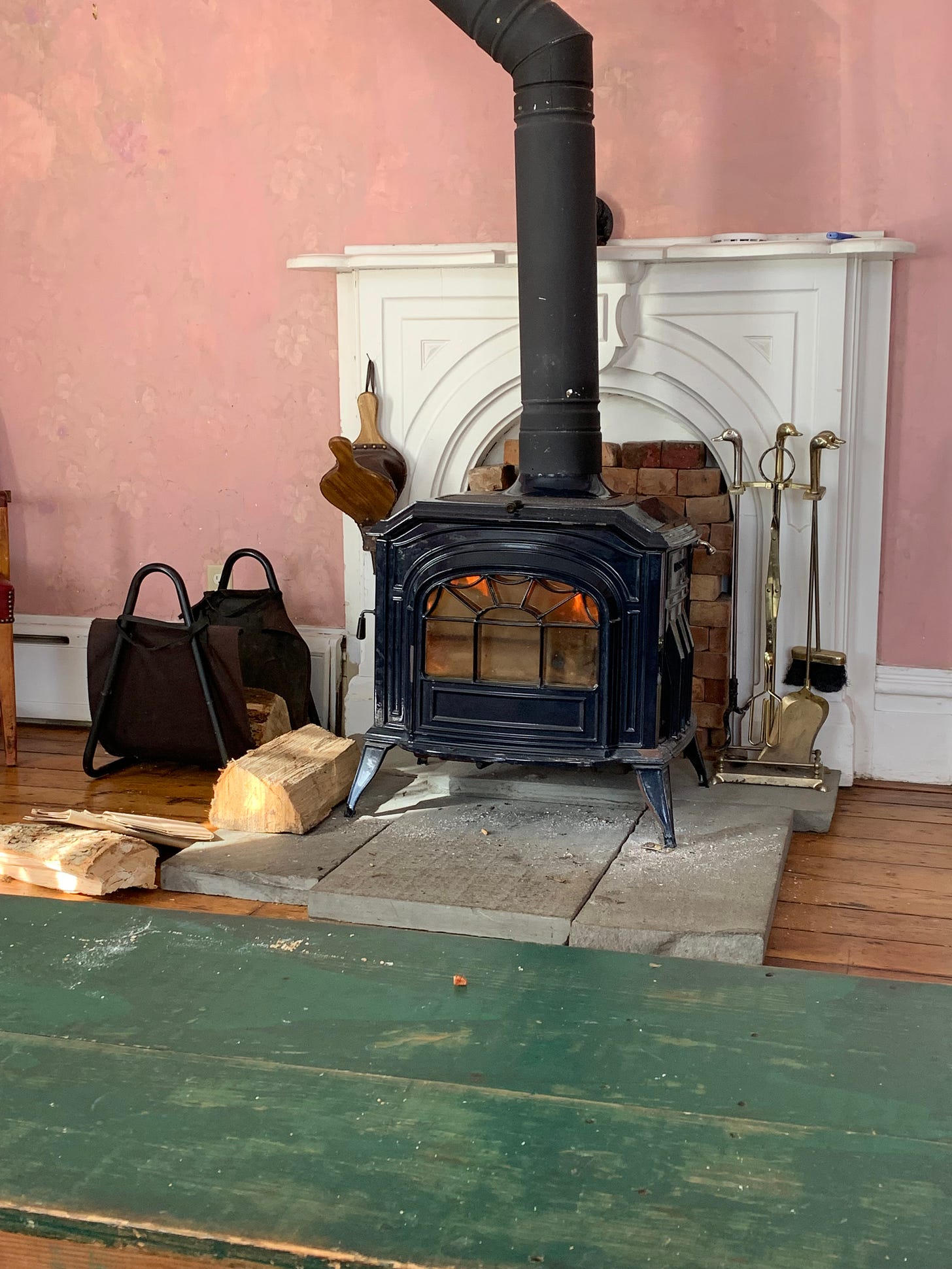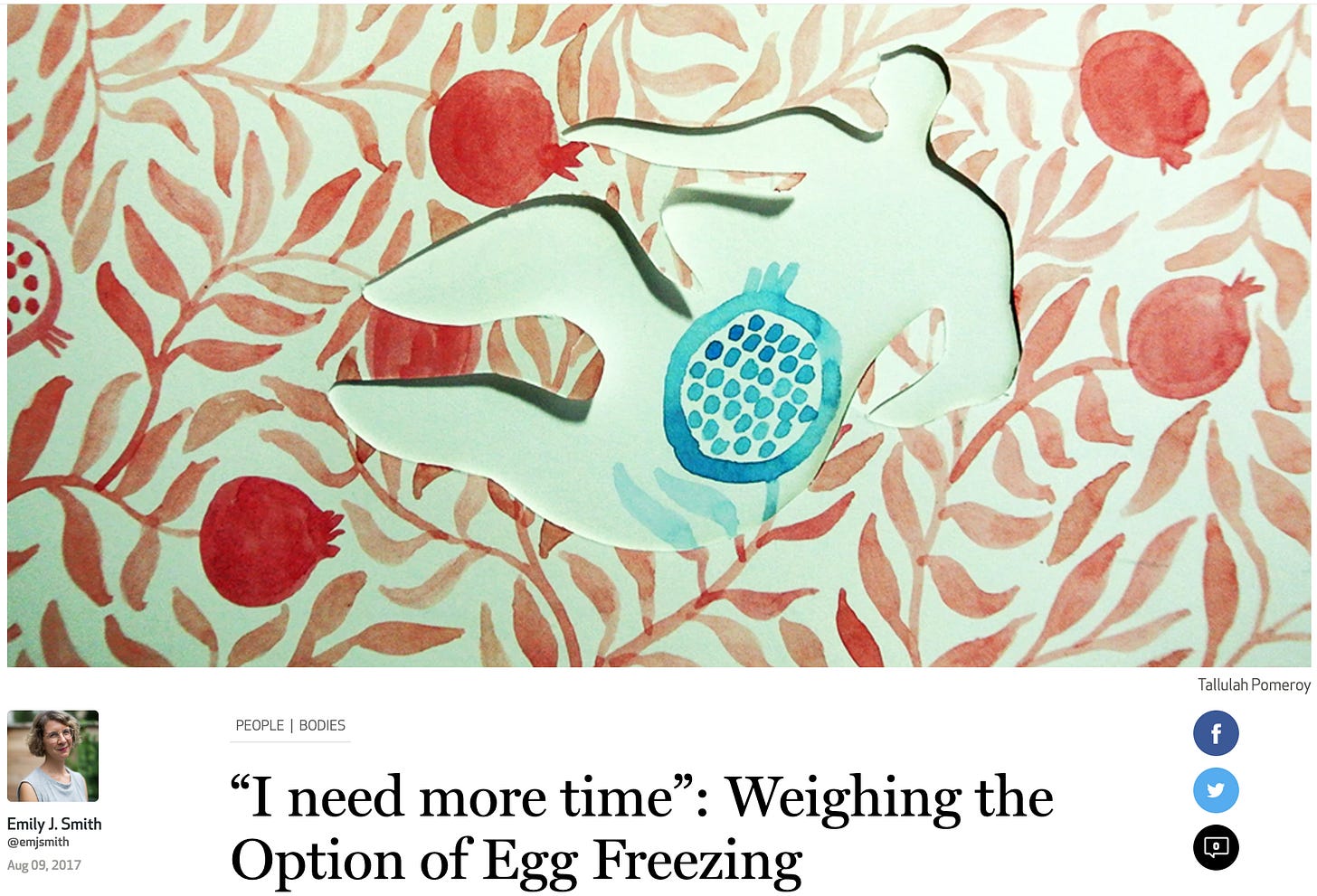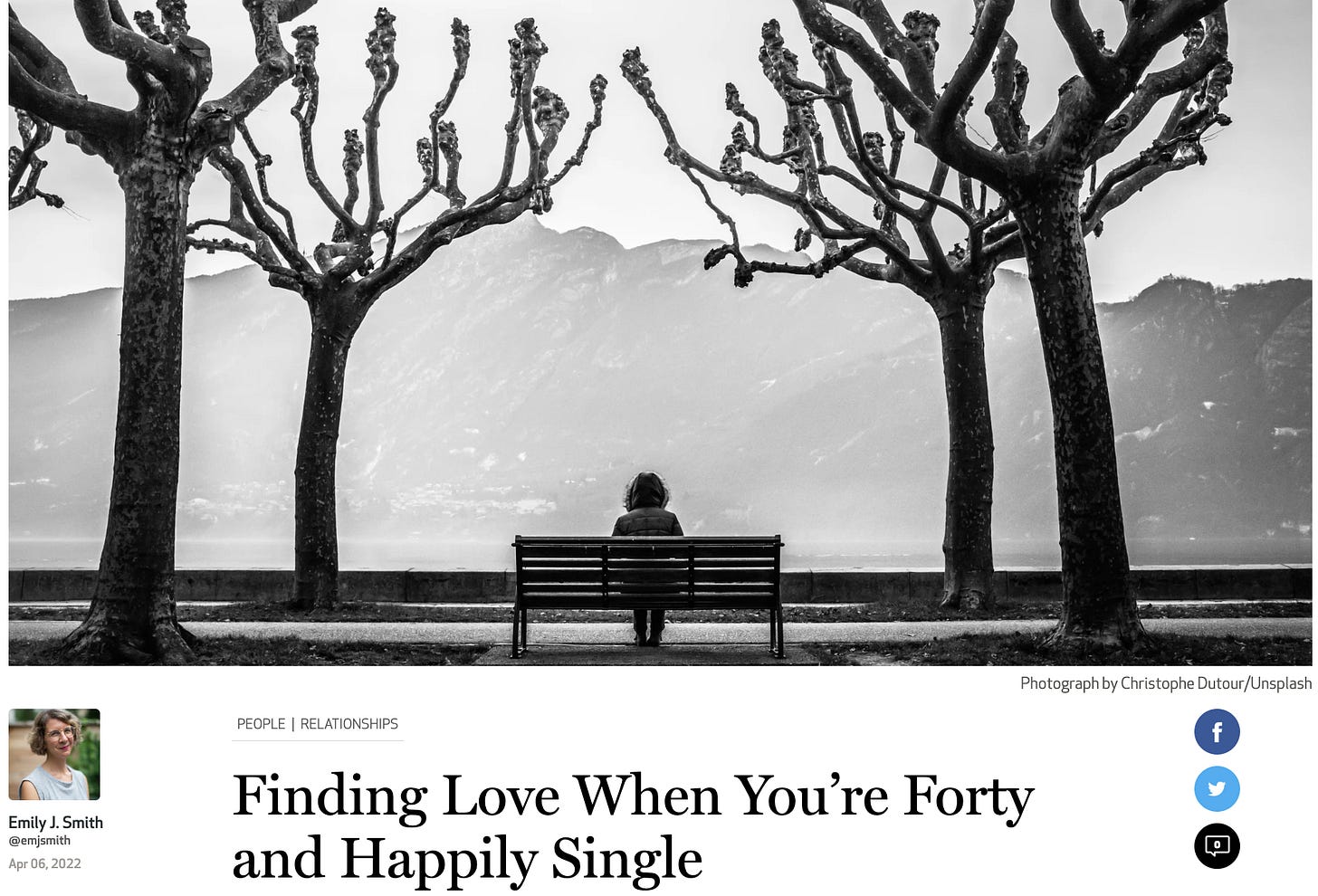On Creative Friendships
And Catapult Closing
There is nothing better than empty time with people who understand you.
I’m typing this from the living room of an old house that a few writer-friends and I rented in upstate New York. We sit silently in our respective corners pounding out ideas and edits, knowing that when we come together keyboard clunks will cease and we’ll launch into everything from life decisions to literary gossip to Trader Joe’s finds. I’ve known these women for seven years. A long time! But, also, at forty, it’s not that long. And yet, coming together this weekend has the air of a family reunion.
We haven’t seen one another in about a year, but these women get me in a way that renders the social equivalent of a warm bath. Courtney put it best when she explained, on arriving, that she’s typically filled with anxiety and dread before a big engagement. But that morning, she popped out of bed feeling nothing but excitement. We all did.
Writer-friends still feel like a new phenomenon for me, in that I still have the capacity to be deeply grateful for them, because it took me so long to find them. In my twenties, writers—artists of any kind—intimidated me; like people with straight hair, they felt like another species.
My first writing class was in a small office space in midtown at a place called Catapult. I was thirty-three and terrified to sign up for a class that met more than once, lest I mortify myself beyond return in the first meeting, so it was a one-time seminar. You had to “apply” to get in, a trick I’d later learn was mostly just to weed out bots, but made me feel, at the time, like I was actually not a completely talentless piece of trash when I was “accepted.” I would also later learn that these small confidences mean everything.
I spent most of those two hours taking in the people around the room, not least of all the teacher, Chloe Caldwell, who I admired beyond belief and who I couldn’t possibly know would, over the years, become one of my closest friends—now at the dining room table in the neighboring room. I imagined what their lives were like that these people actually called themselves writers, and also planned, survivalist-style, what I would do if I were asked to read my work aloud. (The relief I felt when Chloe assured the room that reading aloud was optional remains one of the greatest of my life.)
After class, wine and crackers were served and students were encouraged to mingle. I jumped to fill a paper dixie cup with red, finally feeling—after five years of management consulting and an MBA under my belt—that I had something to offer via mindless, energetic chit-chat. Except that nearly all the students had left.
Which is how I found myself standing next to Chloe at the snacks table, saying lord knows what because it was an out-of-body-experience of sorts but apparently something critical about Greta Gerwig movies that she didn’t agree with, but must not have been entirely idiotic, because it ended with her inviting me to a workshop at her house upstate. I left that class with the distinctly New York feeling that anything is possible if you bounce around the city long enough.
When she emailed me details that night, I felt as if I’d won the lottery. It’s one of those moments that sticks in your mind. I was laying in bed—the only comfortable place to sit in my small studio apartment—reading her email over and over, like rubbing a trophy. Then editing my reply endlessly until the words barely made sense.
I’ve always been prone to adoration. I don’t remember much from childhood, but I remember idolizing Lauren, the most athletic girl on the playground. I remember spending every recess trying to jump as far as her, run as fast as her, watching how she moved, wishing, in a not-abstract sense, that I could transform into her. This has never really changed (as I write this, I am wearing a sweatshirt stamped with Jacqueline Novak’s face). Every now and then this has the unfortunate tendency to manifest itself with men. I’ll idolize a crush, creating an inherent and inescapable power imbalance that never ends well. But in my healthier states, there is almost always a woman in my life who I adore.
With each bitter cold step from the Hudson train station to Chloe’s house, a half- mile away, I considered turning around. I noticed other women, creative women, younger women, walking towards the house—real writers, I thought. But I didn’t have anywhere else to go, so I kept walking. Thank god. The women who sit in this cozy old house with me now, I met through those workshops. Nearly every writer friend I have, I met through workshops.
Without writer-friends in my life, I would not write. Because I would feel absolutely and utterly insane. Committing your free time to twiddling with a word doc that (most likely) no one will ever see feels like a psychotic act, plain and simple. It is invaluable to know that other people who are not already on bookshelves or motivated by a deal in-hand are also committing time to this tedious practice of one-sided communication. To have people around who understand that just because the act of writing feels terrible and often what you write sounds terrible and everything at first really is objectively terrible, it’s completely understandable that you can’t stop doing it.
I started this post over a week ago. Returning from that weekend with my workshop friends, which was the closest thing to Narnia I can imagine, I was supposed to go to a large-ish super bowl party with people I’ve known for over a decade. I had a headache, so I bailed, but, maybe more so, the idea of bouncing around quick conversations between plays, exchanging quips at flashy ads, too many people and not enough time to get into anything in particular, felt exhausting. I was glowing from a weekend of feeling known and wanted to sit with that for as long as I could.
Catapult, where that first one-time writing class with the poorly-attended wine and crackers was held, is an institution most essayists and NY-based writers are familiar with. Five years ago they were at the forefront of writing classes and personal essay publishing. Which meant that, like many other essayists, it meant a lot to me.
There’s a long story behind Catapult and one I’m not qualified to write about, nor do I need to when so many others have done so. For starters, Jill wrote about it in her excellent newsletter, and you can find some powerful threads on Twitter. Was it founded by Koch money? It was. Did it end up being wildly mismanaged and exploitative according to the writers who worked there (including Chloe who predicted their decline over breakfast days before the announcement)? Definitely. But for a while, it helped a lot of emerging writers with the small steps that, especially in the beginning, mean everything.
The first essay I published with Catapult got me my first agent (which did not, in fact, get me a book deal, though we tried!). For that essay, which used a particularly uncomfortable and demeaning egg freezing consultation as the lens for broader questions around the choice of children and female identity at large, I worked with the brilliant Nicole Chung as my editor.
I had never worked with an editor in a real way, so when Nicole sent me her edits, I replied to each one with an explanation of why the line was actually really important. 🤦♀️ She didn’t engage with my nonsense. She simply replied that if I wasn’t ready to publish the essay, that was okay (god bless her). As I re-read her notes, defenses aside, it was clear each one really did make it better. Of course Nicole Chung made it better.
This was the first essay that made me feel like a real writer. To this day, it’s one of the pieces I’m most proud of.
Last year, I published my second (and last) essay with Catapult. Five years later, it’s funny how the two sort of bookend one another. I worked with the amazing Tajja Isen as my editor. I hadn’t written, not really, in two years (see my recent post about obsession and my 2020 breakdown). But I had recently found myself in a stable, committed relationship for the first time in over a decade and I needed, desperately, to process it through writing.
I’ll admit, I wasn’t thrilled with the title. I’d originally called it “Stuck In A Single Identity,” alluding to the heart of the essay, which explores the uncomfortable feeling of finding myself in partnership after spending years building an identity around my singleness. But SEO is the game, and anyway it wasn’t up to me. The thing about having a place that maybe might publish your essay, is that it motivates you to finish your essay. Being in a relationship still feels insane to me, how we, as a culture, take partnership as a kind of given when it’s chock-full of compromise and confusion (some good stuff, too, of course!). And finishing this essay was an essential step in starting to make sense of who I am in this new context—a process that’s from complete.
A huge way that writers learn, especially those of us without formal training, is by working with editors. I love having the freedom to call these self-published newsletter posts whatever I want and go long when I feel like it (always), but most of the time they’re worse off for it. That emerging writers are consistently losing quality spaces to publish, beyond sensational click-bait farms that seem to be the only surviving sites, is a huge loss. And another reason why creative friendships are everything. Having a place to send your work, a person eager to read it, is often all we need to keep going.






hashtag relatable content!